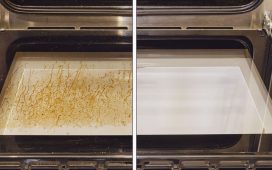The system for setting NHS staff pay is under threat after health unions refused to submit evidence to the two bodies that advise ministers on how big annual increases should be.
The role and credibility of both the NHS pay review body (NHSPRB) and the review body on doctors’ and dentists’ remuneration (DDRB) have been brought into question by the move.
Unions representing more than 1 million nurses, ambulance workers and other personnel have refused to submit joint evidence in the usual way to the NHSPRB about the pay for 2023/24 unless ministers first settle the bitter dispute over this year’s salary increase that has triggered a wave of strikes.
The British Medical Association, the main doctors’ trade union, said it was also taking similar action and would not submit evidence to the DDRB because “the process is rigged from the start”.
Health unions’ trust in the pay review system has become strained in recent years as a result of recommendations from the review bodies leading to NHS personnel receiving rises below the level of inflation at the time and thus suffering year-on-year real-terms falls in their income.
But their faith has collapsed in recent weeks. That has coincided with the health secretary, Steve Barclay, repeatedly justifying his refusal to increase his offer of a £1,400-a-head salary rise for 2022/23 by insisting that he cannot go beyond what the NHSPRB recommended, even though it proposed the £1,400 sum before Russia’s invasion of Ukraine sent inflation soaring.
The unions’ break with the longstanding system of setting NHS pay comes as the Labour government in Wales is reportedly preparing to offer health service staff there on Thursday a one-off payment – reportedly of £1,000 – to resolve the row over their 2022/23 pay deal.
Some union officials said privately that £1,000 might be enough to persuade their members to stop striking but others believed that the sum may still be too little to break the deadlock.
The Scottish government has submitted a “best and final” offer to NHS staff of a £2,205 pay rise for 2022/23. However, while some unions have accepted it, others – including the Royal College of Nursing – have rejected it.
The Westminster government is also looking at the idea of a one-off payment, which would be non-consolidated and therefore not added to staff’s baseline salaries, to end the impasse over 2022/23. However, recent reports said that neither the prime minister, Rishi Sunak, nor Jeremy Hunt, the chancellor, were keen on it.
The NHSPRB’s eight members are chosen by ministers and include no union representatives, leading to claims that it is not truly independent of government.
Representatives of 14 health unions said they would not submit evidence about 2023/24 to it because “the lengthy pay review process is not able to deliver what is needed right now”. They want to hold direct talks with ministers to agree pay rises instead.
“The pay review body process doesn’t fit the current context”, said Sara Gorton, Unison’s head of health and the chair of the NHS group of unions.
Prof Philip Banfield, the chair of the BMA, said: ‘The medical profession has long lost faith in the fairness or independence of this process. Neither junior doctors nor consultants will even submit evidence this year, knowing the process is rigged from the start.”
No 10 said they were disappointed that the health unions, which wanted to set up the pay review bodies, have decided not to take part in the process.
The PM’s official spokesperson said: “It is disappointing that they have taken this step. We do think it’s in everyone’s interests for the unions to contribute.”
He said the government had committed to “properly” consider a one-off payment and backdating the 2023/24 pay deal to this month as potential ways of ending the dispute.
Meanwhile, physiotherapists will soon join nurses and ambulance staff in striking in pursuit of a better pay deal for this year.
They will stage their first strike at 30 NHS trusts in England on 26 January with a second planned – this time at 60 trusts – unless Barclay increases the £1,400 offer.












